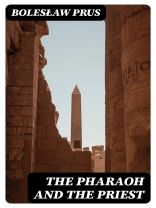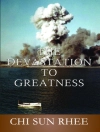Bolesław Prus’s 'The Pharaoh and the Priest’ intricately weaves a narrative set against the backdrop of ancient Egypt, exploring the cosmic and societal tensions between divine authority and mortal governance. The novel captures the essence of Prus’s literary style, characterized by rich symbolism and detailed characterizations, while employing a blend of historical fiction and philosophical discourse. Set during the reign of the Pharaoh Ramses XIII, the work offers critical commentary on power, civilization, and religious belief, reflecting the author’s keen interest in the interplay of culture and ethics, which resonates amid contemporary debates about the nature of leadership. Bolesław Prus, a significant figure in Polish literature, was deeply influenced by his experiences in the tumultuous socio-political landscape of 19th-century Poland, as well as his extensive travels in Europe and the Middle East. His background as a journalist and social critic imbues 'The Pharaoh and the Priest’ with a profound understanding of human nature and societal structures, guiding readers through the philosophical inquiries that shaped his worldview. Prus’s engagement with themes of fate and doctrine reflects his fascination with the historical continuity of power dynamics. This novel is highly recommended for readers interested in historical narratives that challenge contemporary moral dilemmas. Prus’s blend of engaging storytelling and insightful social critique elevates 'The Pharaoh and the Priest’ beyond mere entertainment, inviting readers to reflect on the timeless struggles between individual ambition and collective responsibility.
O autorze
Bolesław Prus, born Aleksander Głowacki (1847–1912), was a Polish journalist and one of the most prominent figures in the literature of Poland’s positivism period during the late 19th century. With a career both as a prose writer and a columnist, he is best known for his deep psychological analysis in the social and historical settings of his novels. Prus’ paramount novel, 'The Pharaoh and the Priest’ (’Faraon’), published in 1895, is recognized as a masterpiece of Polish and world literature. The work is an intricate historical novel set in Ancient Egypt; it showcases Prus’ belief in progress and in the triumph of reason over tradition, a central theme in the positivist ethos. His narrative construction in 'The Pharaoh and the Priest’ reflects a meticulous understanding of historical processes and an insightful exploration of power dynamics. Prus’ literary style, marked by his clear, succinct prose and narrative realism, not only brought him acclaim within Poland but also contributed to the universal appeal of his works. His contributions to literature go beyond just storytelling, as his works engage with themes of social reform, individual agency, and moral conduct, reflecting the intellectual currents of his time. Prus’ oeuvre constitutes a crucial part of the canon of Polish literature and provides key insights into the cultural and socio-political landscape of 19th-century Europe.












